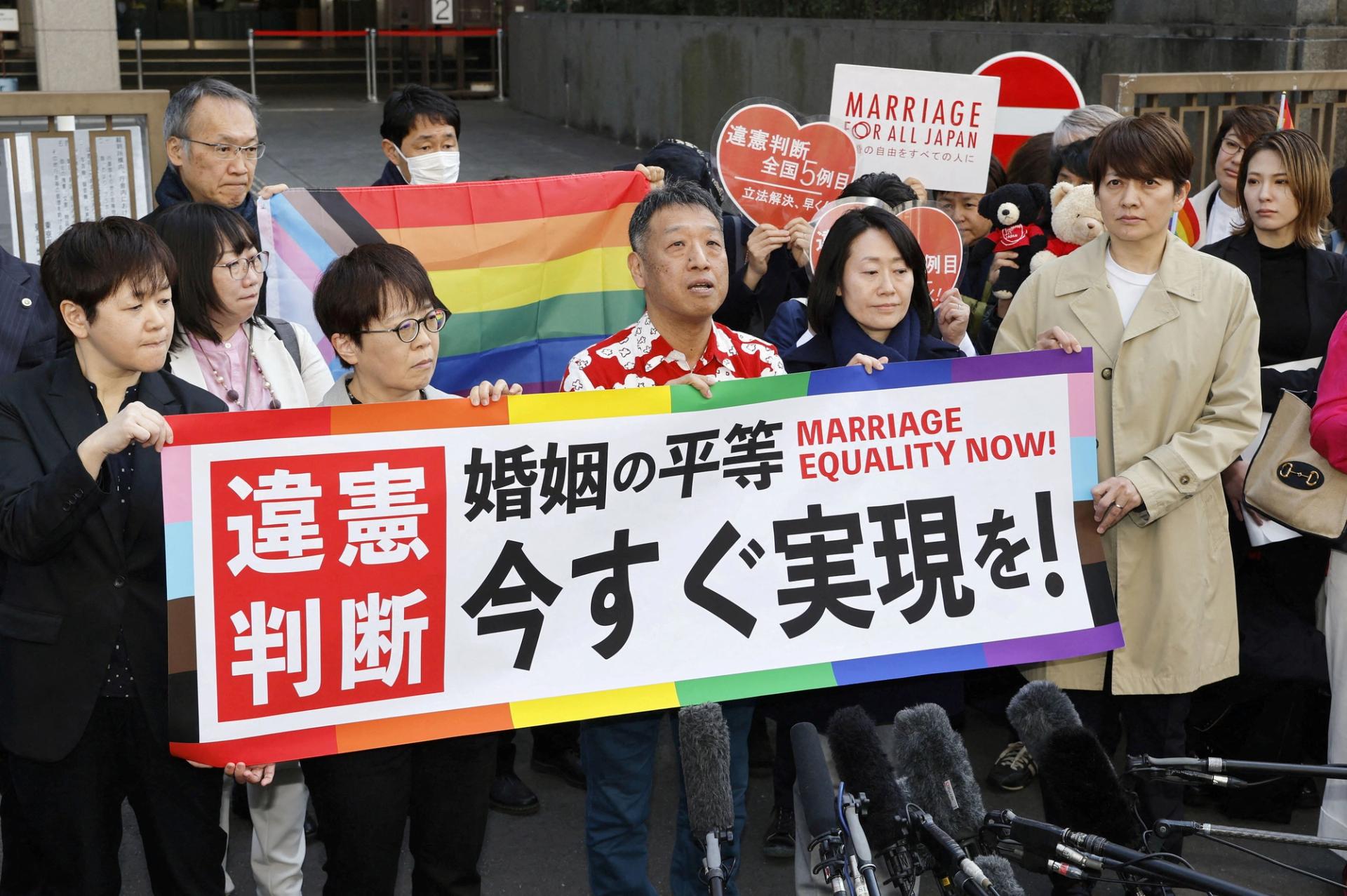The News
A high court in Japan on Thursday ruled that denying same-sex marriage is unconstitutional, a move cheered by LGBTQ+ activists who are pressing the country’s government to make same-sex unions legal.
The current law in Japan has been interpreted as restricting marriage to being between a man and a woman — a position supported by the conservative ruling party, but increasingly out of step with public opinion.
The Sapporo High Court upheld a lower court’s verdict that not recognizing same-sex marriage violated the country’s constitution. “Enacting same-sex marriage does not seem to cause disadvantages or harmful effects,” the court said.
However, the court does not hold the power to overturn the law, meaning it will fall to the government to take the historic step of recognizing same-sex unions.
Japan is the only member of the G7 group of developed nations that has not legalized marriage and spousal benefits for same-sex couples. However, its courts have issued other landmark LGBTQ+ decisions in the past year, including declaring a law that required transgender people to undergo sterilization surgery unconstitutional.
SIGNALS
Attitudes towards same-sex marriage are changing in Japan
Public support for recognizing same-sex marriage is increasing in Japan, with a survey by Kyodo news agency last year finding that 64% of people were in favor. A similar survey by Asia researchers at Stanford University found that respondents became more supportive when it was presented as an issue of human rights and gender equality. Businesses have voiced fears over how a lack of legal protection for same-sex couples impacts global talent recruitment in one of Asia’s leading financial centers, with Masakazu Tokura, chairperson of the Keidanren, a business lobby group, saying he was “ashamed” of Japan’s outlier status among the G7. The New York Times noted that Japan’s elderly population may be a factor, with a Tokyo reporter for the paper saying in an interview that when “people who might hold more conservative views pass on, I think things will change.”
Japan stumbles over introduction of first anti-LGBTQ+ discrimination law
After months of pressure to institute legal protections for the LGBTQ+ community — and with an impending G7 summit — Japan’s parliament hastily passed the country’s first anti-discrimination bill in June last year to “promote understanding” of LGBTQ+ people. However, a reference that stated gender discrimination would not be tolerated was watered down to say only that “unfair” discrimination would not be allowed, Bloomberg reported. Moreover, the law outlined no punishments for infringements and said measures should only be implemented as far as citizens feel “at ease,” which legal experts criticized as “impossible to implement.” “The revised law has no meaning at all. It will not lead to any kind of lawsuits or legal change,” a professor of law at Meiji University in Tokyo told Nikkei Asia, while Amnesty International criticized the measures as “not enough.”
Debate puts ties between Japan’s ruling party and a right-wing religious group in the spotlight
The debate surrounding the anti-discrimination law points to a “growing gulf between Japan’s ruling Liberal Democratic Party (LDP) and public opinion on gender-related issues,” Nikkei Asia wrote. The LDP has numerous ties to the Unification Church in Japan — a controversial right-wing religious movement that some see as a cult. After the group’s ties to various lawmakers came under the microscope following the assassination of former Prime Minister Shinzo Abe, the government voted to dissolve the church in October over its fundraising activities. However, its conservative gender ideology — which states that same-sex unions destroy families and harm national stability — appears to cast a long shadow. “Political opposition to issues such as gender-neutral language, LGBTQ rights and the use of separate surnames for married couples chimes closely with the fundamental teachings of the Unification Church,” The Japan Times reported in 2022 following Abe’s assassination.

